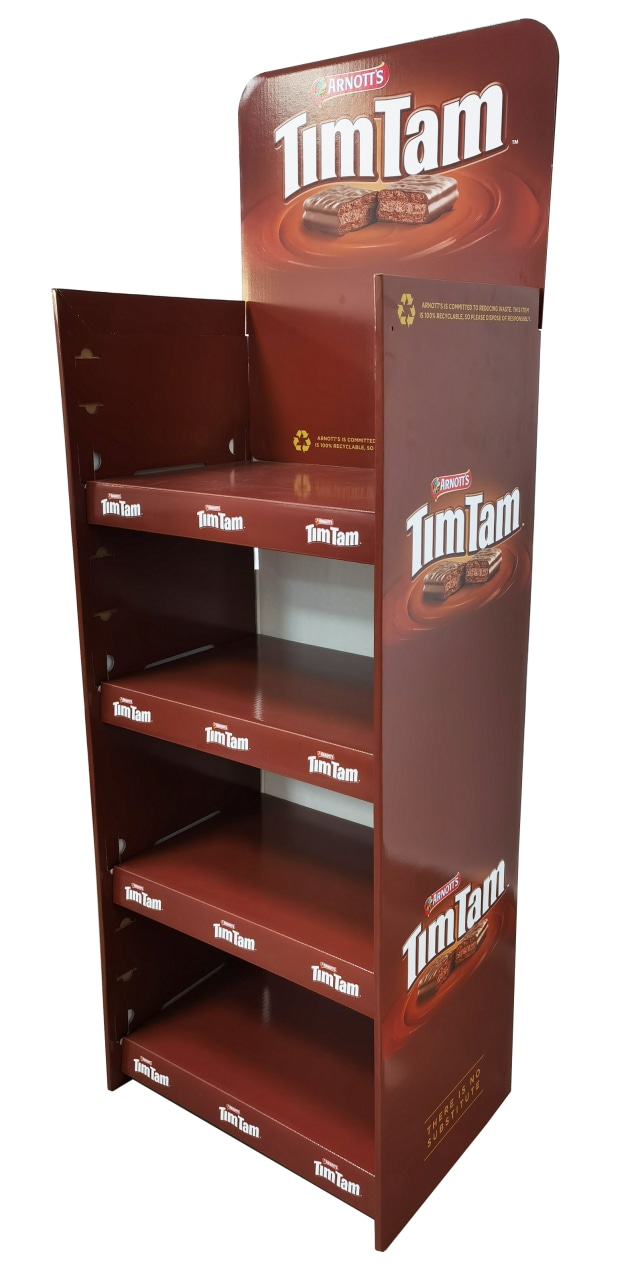To mark National Recycling Week, the Arnott’s Group has shifted all of its new point-of-sale displays across grocery and convenience channels to 100 per cent recyclable alternatives.
The new displays, developed in partnership with manufacturer Lithocraft, will replace the regular plastic clips with 100 per cent recyclable paper clips made from a highly durable compressed paper and will utilise soluble varnish, instead of laminates, to allow for greater recyclability of the cardboard itself.
The display towers, which are being rolled out from November, are transported in carboard boxes and any merchandising materials in compostable or biodegradable shrink wrap, which can be discarded in food organics bins.

Michelle Foley, chief customer officer at Arnott’s Group, said the shift was “driven by the ingenuity of our people” in collaboration with partners at Lithocraft.
“We’ve identified an opportunity where a small change, that does not impact the consumer experience, could have a profound impact on the environment,” Foley said.
“We’ve made the decision to bypass a trial and commit to fully recyclable displays and point-of-sale materials, a change that will reduce our plastic to landfill by 25.5 tonnes each year, and allow us to recycle over a million pieces of cardboard, much of which would have previously ended up in landfill.
“As a large manufacturer, we appreciate the role that we play in Australia’s food system and the responsibility that we have for the planet,” she said.
“We’re continuing to seek out new and innovative ways to reduce our environmental footprint at the same time as we drive growth across our business.”
Nick O’Sullivan, Lithocraft’s managing director, said that together with the Arnott’s team, Lithocraft was committed to implementing proactive strategies that offset the impact of the point-of-sale materials that they produce.
“From design through to delivery, we ensure the materials we use are considered, the quantities we produce are non-excessive, and are transported in compostable or recyclable outer packaging,” said O’Sullivan.
“We produce the majority of the Arnott’s point-of-sale materials at our Melbourne facility, which utilises renewable solar energy, which dramatically reduces our CO2 output and Ecoclean recycling technology to ensure zero harm to the environment.”
The first 100 per cent recyclable displays are instore now, featuring some of Arnott's iconic baking biscuits available in the lead up to Christmas.
The Arnott’s Group says it is determined to make recycling as easy as possible for its consumers, which is why the company has committed to including the Australasian Recycling Label across 100 per cent of its products by 2023, with 56 per cent of products already bearing the label.
The cases and cartons used for Arnott’s products are already made from over 95 per cent recycled content, while over 90 per cent shelf cases have been changed from white to brown boxes over the past four years, removing thousands of tonnes of bleached paper from the supply chain each year.





